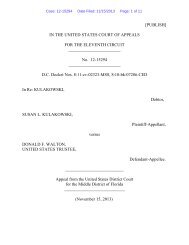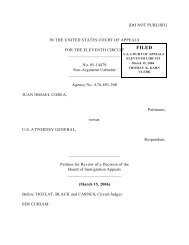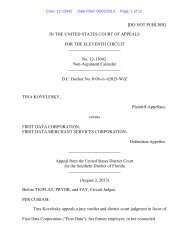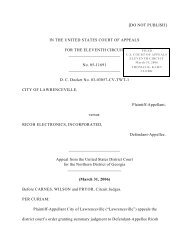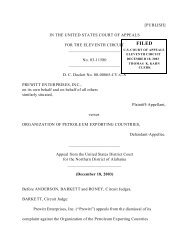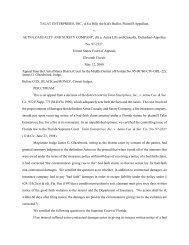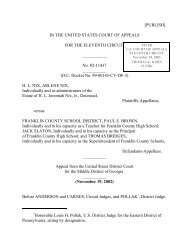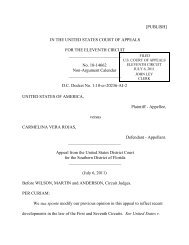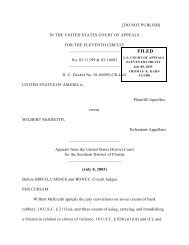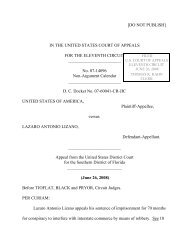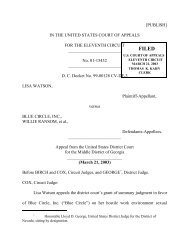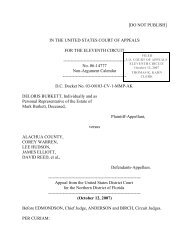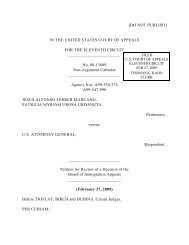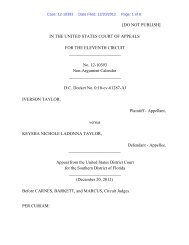USA v. Roy M. Belfast, Jr. - Court of Appeals - 11th Circuit
USA v. Roy M. Belfast, Jr. - Court of Appeals - 11th Circuit
USA v. Roy M. Belfast, Jr. - Court of Appeals - 11th Circuit
Create successful ePaper yourself
Turn your PDF publications into a flip-book with our unique Google optimized e-Paper software.
Torture Act as well.<br />
Emmanuel’s conviction for conspiracy to commit torture is constitutional,<br />
and his acts fell within the proscriptions <strong>of</strong> the Torture Act.<br />
V.<br />
Emmanuel’s next challenge is to his conviction for using and carrying a<br />
firearm during and in relation to a crime <strong>of</strong> violence, pursuant to 18 U.S.C. §<br />
924(c) (Count Eight), a statute which he claims cannot be applied to his<br />
extraterritorial conduct. In resolving this issue we address two questions: first,<br />
whether the statute can ever apply extraterritorially; and second, whether the<br />
district court plainly erred in applying 18 U.S.C. § 924(c) to Emmanuel. We<br />
answer the first question in the affirmative, and the second question in the<br />
negative. The challenged conviction must stand.<br />
As with Congress’s ability to regulate the conduct <strong>of</strong> United States citizens<br />
abroad, it is well established that Congress can regulate conduct outside <strong>of</strong> the<br />
territorial bounds <strong>of</strong> the United States (not just that <strong>of</strong> its own citizens), EEOC v.<br />
Arabian Am. Oil Co., 499 U.S. 244, 248 (1991), superseded on other grounds by<br />
statute, Civil Rights Act <strong>of</strong> 1991, Pub. L. No. 102-166, 105 Stat. 1074, but, again,<br />
we assume that Congress does not intend for a statute to apply extraterritorially<br />
unless it evinces that intent clearly, Sale, 509 U.S. at 173; see also United States v.<br />
50



